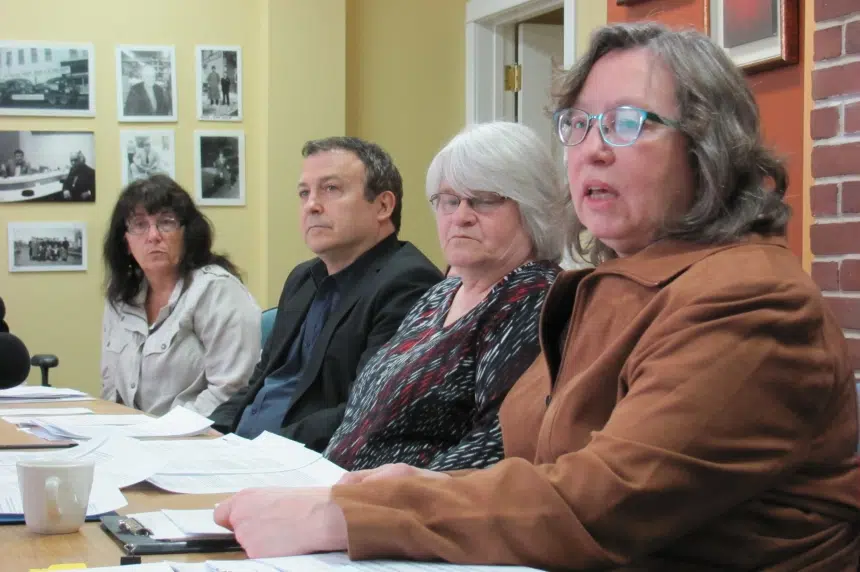Several Regina groups are working together to get poverty to the top of the list of provincial election issues.
The groups involved are Poverty Free Saskatchewan, the Regina Anti-Poverty Ministry, and Regina Education and Action on Child Hunger (REACH). They have developed a set of 10 questions about poverty reduction that they’ve put to the political parties.
The questions ask what the candidates will do about food security, adequate income security, a living wage, affordable housing and childcare, equity, and better wealth distribution.
“We want to get these questions out there, we want the public talking about them, we want them to be asking their candidates about these issues,” explained Peter Gilmer, an advocate with the Regina Anti-Poverty Ministry.
The groups believe poverty is a problem in Saskatchewan.
Bonnie Morton is also with the anti-poverty ministry. She said social safety nets in Canada are failing people, making it so the poor and most vulnerable – like those with disabilities – can’t meet their needs.
Morton challenged voters to look at what people on social assistance are getting and ask themselves if they can live on that.
“If you can’t, and honestly can’t, then please question yourself as to why we aren’t doing more to make a difference in the lives of these people?”
Morton also said Saskatchewan is not living up to its obligations under the U.N.’s International Covenant on Economic, Social and Cultural Rights.
She spoke passionately on the issues, explaining the covenant makes things like adequate pay for work, and having reasonable access to shelter and food, human rights issues. Morton said she’s been at the sessions where Canada reports on their compliance with the covenant.
“I’ve been at the United Nations when Canada’s reported, and I swear I’m sitting and listening to another country giving its report and wishing like hell I could live in that country. But then when I sit there and I realize this is the country that I live in and it does not portray the real picture of what’s going on here in the area of poverty.”
Morton said poverty is not a choice.
“I do not know one person who’s walked through my door and said ‘God, poverty looks great, I aspire to be poor. Can you help me do that?’ What we get from them is ‘can you help us get out of it?’'”
Saskatchewan is in the middle of an economic downturn and is potentially facing two straight years of deficit budgets, but Gilmer said poverty needs to be made a priority.
“Now that people are hurting, I don’t think that we stop just because we’re in tough economic times.”
Gilmer said during the boom years between 2008 and 2013, Saskatchewan reached a new high number of millionaires at 8,000, but also had the highest growth in people using food banks. Now that the economy isn’t doing as well, he said people who were doing badly then, are doing even worse.
For those who don’t think more taxpayer dollars should be going to combat poverty, Gilmer argued people’s self-interest is related to the common good.
“Those societies that have a narrower gap between rich and poor do better on a whole lot of indicators. And it’s not just low income people who do better, it’s middle income people, and, in fact, it’s the wealthiest members of your society – their life expectancy, their quality of life tends to better.”
You can read the full list of questions below.











